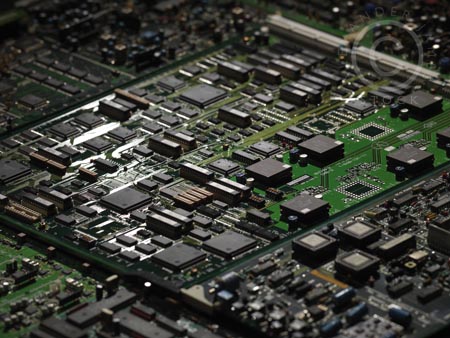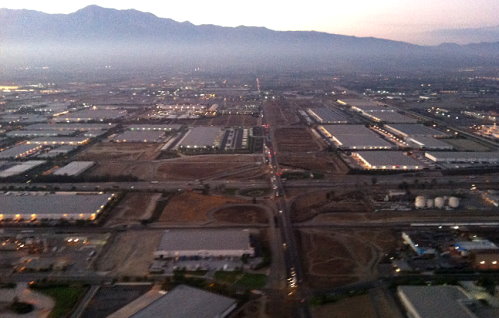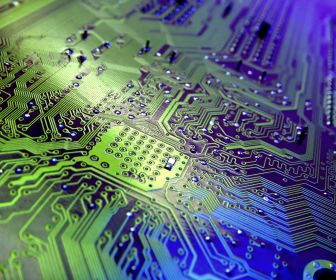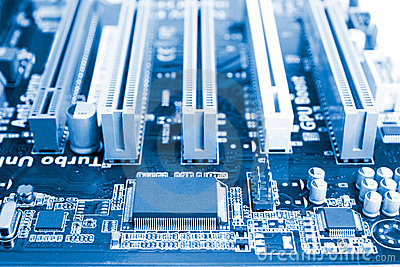It looks like you're using an Ad Blocker.
Please white-list or disable AboveTopSecret.com in your ad-blocking tool.
Thank you.
Some features of ATS will be disabled while you continue to use an ad-blocker.
share:
a reply to: Zelun
Time may be mortal concept. Hence its expressed in a very mortal way. Which is why in science its called decay or entropy, but on human terms is also known as death.
Change is the only constant. Hence why time appears to be backwards. Because its not linear, only a human mind is a linear thing. On a universal scale, if there were no change, no suns going supernova and creating denser matter and material, there would be no apples and no trees, and no life.
How about this, entropy begot matter and all life, and all matter and life begets entropy. A self feeding system, which is why change is the only constant, and that change from a human perspective? Is sometimes called time.
Time may be mortal concept. Hence its expressed in a very mortal way. Which is why in science its called decay or entropy, but on human terms is also known as death.
Change is the only constant. Hence why time appears to be backwards. Because its not linear, only a human mind is a linear thing. On a universal scale, if there were no change, no suns going supernova and creating denser matter and material, there would be no apples and no trees, and no life.
How about this, entropy begot matter and all life, and all matter and life begets entropy. A self feeding system, which is why change is the only constant, and that change from a human perspective? Is sometimes called time.
a reply to: galadofwarthethird
Nope. Time IS a universal construct, it is the very direction of the entropy which resulted in our evolution, and further the principle upon which we meat creatures have built our industry. We build these machines in a mad dash to beat entropy, because it is only so apparent that entropy wishes to grind us down to our bones. So we innovate, and we invent, and now we even propose brains to replace our own squishy ones, because we know, subconsciously, they won't pass the smell test.
We squishy we seek immortality.
Our machines will carry our spirit, and our determination will desquishify that intent.
Nope. Time IS a universal construct, it is the very direction of the entropy which resulted in our evolution, and further the principle upon which we meat creatures have built our industry. We build these machines in a mad dash to beat entropy, because it is only so apparent that entropy wishes to grind us down to our bones. So we innovate, and we invent, and now we even propose brains to replace our own squishy ones, because we know, subconsciously, they won't pass the smell test.
We squishy we seek immortality.
Our machines will carry our spirit, and our determination will desquishify that intent.
a reply to: Zelun
Sorry you believe in fantasies. The truth often hurts. And has an adverse effect it seems.
But you will get over it. Not like it matters, as you and we are all just recycled materials. I personally blame entropy. But most would blame this time paradox on Trump no doubt, as most peoples worlds revolve around that.
But I suppose we can have time fight. Lets say, meet you here in ten thousand years. Will be a bit busy for a while yet.
Or! How about this? Traveling through time, one post and thread at a time.
Sorry you believe in fantasies. The truth often hurts. And has an adverse effect it seems.
But you will get over it. Not like it matters, as you and we are all just recycled materials. I personally blame entropy. But most would blame this time paradox on Trump no doubt, as most peoples worlds revolve around that.
But I suppose we can have time fight. Lets say, meet you here in ten thousand years. Will be a bit busy for a while yet.
Or! How about this? Traveling through time, one post and thread at a time.
a reply to: galadofwarthethird
Do not blame entropy. Entropy is cruel, and yet fair. Do not invoke partisan politics, these are temporal trappings.
But I accept your time fight challenge, Galod of War the Third. I will see you here in ten thousands years. I, Zelun, will in the meantime prepare myself, transferring my consciousness to the machine, and will patiently await.
I have a sneaking suspicion that it will be less of a time fight, and more of a high five for having survived this squishy nonsense. But we can still have a bout. Let's name terms now! If I win, you have to give me 30k terraflops of processor time!
Do not blame entropy. Entropy is cruel, and yet fair. Do not invoke partisan politics, these are temporal trappings.
But I accept your time fight challenge, Galod of War the Third. I will see you here in ten thousands years. I, Zelun, will in the meantime prepare myself, transferring my consciousness to the machine, and will patiently await.
I have a sneaking suspicion that it will be less of a time fight, and more of a high five for having survived this squishy nonsense. But we can still have a bout. Let's name terms now! If I win, you have to give me 30k terraflops of processor time!
a reply to: Zelun
Really time is a universal concept? You sure, what does the rest of the universe have to say about that? Have you asked it?
And you did all that to beat entropy?
May want to tackle something infinitely more easy. Like not tripping over your own theories. Looking at history and the history of believes and theories, its not looking to good on that department as well.
Not to well at all, that is one crappy track record.
You know they say a mind is a terrible waste of time. But also a mind came up with that saying as well.
So I suppose it sort of cancels itself out then.
Really time is a universal concept? You sure, what does the rest of the universe have to say about that? Have you asked it?
And you did all that to beat entropy?
May want to tackle something infinitely more easy. Like not tripping over your own theories. Looking at history and the history of believes and theories, its not looking to good on that department as well.
Not to well at all, that is one crappy track record.
You know they say a mind is a terrible waste of time. But also a mind came up with that saying as well.
So I suppose it sort of cancels itself out then.
a reply to: galadofwarthethird
Well that's not the saying at all. It's:
"A waste is a terrible thing to mind."
GeT iT StRAiGhT!
Well that's not the saying at all. It's:
"A waste is a terrible thing to mind."
GeT iT StRAiGhT!
a reply to: Zelun
They already have plenty of human like consciousness in machines. There called spyware, adware and malware, the holy trinity of human machine perfection.
Well not quite, but pretty close. Or lets just say, its the same difference.
Also sorry, dont know what a terraflop is, I googled it up but it made no sense. Sorry dont know anything about computers, in fact, I waste to much on those things as it is. I even think this thread is a waste of entropy.
But as were on the topic of processing power. You want to see something cool, check it out, the total sum of human global processing power as looked at from above, so while your playing with your terraflops, whatever that is, entropy may have gotten the best of you already.
Now can you tell me which one is real, and which fake? Were is the terraflop?










They already have plenty of human like consciousness in machines. There called spyware, adware and malware, the holy trinity of human machine perfection.
Well not quite, but pretty close. Or lets just say, its the same difference.
Also sorry, dont know what a terraflop is, I googled it up but it made no sense. Sorry dont know anything about computers, in fact, I waste to much on those things as it is. I even think this thread is a waste of entropy.
But as were on the topic of processing power. You want to see something cool, check it out, the total sum of human global processing power as looked at from above, so while your playing with your terraflops, whatever that is, entropy may have gotten the best of you already.
Now can you tell me which one is real, and which fake? Were is the terraflop?










a reply to: galadofwarthethird
You're going to be real interested in your terraflops once we all exist as entities in a simulated consciousness. And I wager 30k terraflops against your 30k terraflops that once we both have machine brains I win this time fight in 10,000 years.
You're going to be real interested in your terraflops once we all exist as entities in a simulated consciousness. And I wager 30k terraflops against your 30k terraflops that once we both have machine brains I win this time fight in 10,000 years.
a reply to: galadofwarthethird
So assuming the Gregorian Calendar is still tracked 10,000 years in the future that would be November 2nd, 12019, Anno Domini. To be fair, let's say 0600 GMT, so you have a few cycles to brush your cyberteeth and whatnot. Bitshower, I guess.
So assuming the Gregorian Calendar is still tracked 10,000 years in the future that would be November 2nd, 12019, Anno Domini. To be fair, let's say 0600 GMT, so you have a few cycles to brush your cyberteeth and whatnot. Bitshower, I guess.
a reply to: neutronflux
I believe that you are on the right track:
1. Time is a like a three-lane higway - You have the fast lane, middle lane and the slow lane. Everyone is moving simultaneously at the same time but at different speeds and in this case speed is measured by wavenlegths/frequencies. So if you want to travel to what "we" consider to be the past, we simply match the wavelength/frequency and change lanes. However, the past, present and future are dimensions and NOT timelines. So if one was to travel to the past they have assigned that "timeline"/dimension as their present and it will become their future.....just like changing lanes.
2. Speed of light is not constant - only in a vacuum is the speed of light constant. Light is wavelengths and frequencies - every color and spectrum of light has it's own frequency and wavelength, light can be bent and manipulated.
3." Maybe there can only be time if there is mass in movement? An offset of gravity?" - You are very very very close to hitting the proverbial nail on the head. Everything we can see and can't see is made of ions, whether positively charged or negatively charge and these ions are travel in a specific manner just like planets. This vortex/spiral movement is caused by polarity/attraction (because opposites attract) between these negative and positive ions and this attraction is what causes "gravity" and keeps us grounded to the earth. When these ions finally meet in the center and collide with one another, this is when matter is created, which can be anything, such as a spark or a Hydrogen atom or an amoeba. Either way, creation has occurred and then the laws of doubling begin because these ions that have collided are now bonded together and contained within a magnetic field, just as the Earth with its North and South Poles. Now, more and more ions are produced within this containment cell, creating more matter and more mass at an exponential rate......and these ions and the matter that has been created is kept at the center by "gravity" - which is actually the vortex movements of the ions within this magnetic field.
I would explain in much more detail on the inner workings of all of this and how it all relates to the entire universe and reality but I think I would just end up confusing the readers and invite ignorant responses from certain individuals.
I believe that you are on the right track:
1. Time is a like a three-lane higway - You have the fast lane, middle lane and the slow lane. Everyone is moving simultaneously at the same time but at different speeds and in this case speed is measured by wavenlegths/frequencies. So if you want to travel to what "we" consider to be the past, we simply match the wavelength/frequency and change lanes. However, the past, present and future are dimensions and NOT timelines. So if one was to travel to the past they have assigned that "timeline"/dimension as their present and it will become their future.....just like changing lanes.
2. Speed of light is not constant - only in a vacuum is the speed of light constant. Light is wavelengths and frequencies - every color and spectrum of light has it's own frequency and wavelength, light can be bent and manipulated.
3." Maybe there can only be time if there is mass in movement? An offset of gravity?" - You are very very very close to hitting the proverbial nail on the head. Everything we can see and can't see is made of ions, whether positively charged or negatively charge and these ions are travel in a specific manner just like planets. This vortex/spiral movement is caused by polarity/attraction (because opposites attract) between these negative and positive ions and this attraction is what causes "gravity" and keeps us grounded to the earth. When these ions finally meet in the center and collide with one another, this is when matter is created, which can be anything, such as a spark or a Hydrogen atom or an amoeba. Either way, creation has occurred and then the laws of doubling begin because these ions that have collided are now bonded together and contained within a magnetic field, just as the Earth with its North and South Poles. Now, more and more ions are produced within this containment cell, creating more matter and more mass at an exponential rate......and these ions and the matter that has been created is kept at the center by "gravity" - which is actually the vortex movements of the ions within this magnetic field.
I would explain in much more detail on the inner workings of all of this and how it all relates to the entire universe and reality but I think I would just end up confusing the readers and invite ignorant responses from certain individuals.
Same goes for outer space.
Mostly we juat see ppl travelling inner space (oceans, ubderground) but still never outside of orbit since over 50 yrs ago.
Is it even really possible to travel in something thats not really real anymore aside from theory & productions?
Mostly we juat see ppl travelling inner space (oceans, ubderground) but still never outside of orbit since over 50 yrs ago.
Is it even really possible to travel in something thats not really real anymore aside from theory & productions?
We experience everything within human brains and human bodies, through our senses, by our senses, which merely appears, to us on Earth, as a length of
time, while living it out over a period we see through our Earth-bound existence. As I see it, anyway.
The experiences of our lives are usually seen through correct order, as our lives play out, over the concept of time, unfolding new experiences - so, in our minds, we think of it as a new, unknown experience.
But we also experience something already experienced before, which is called deja vu.
It is like a glitch, which causes us to see moments of our whole life at a specific point, when it is not over a consistent, sensible order, where we have each experience happen over our entire lives, while on Earth.
This is sort of like a movie, which you have already seen, while someone else has not yet seen it. You know what will happen next, while the other person does not know, even though it has already happened, in the movie, it is a new experience to him.
Our lives are like movies we have yet to see, to experience, while they already have happened, because time does not exist, but within our senses, time feels to pass along our lives, which is good thing.
The experiences of our lives are usually seen through correct order, as our lives play out, over the concept of time, unfolding new experiences - so, in our minds, we think of it as a new, unknown experience.
But we also experience something already experienced before, which is called deja vu.
It is like a glitch, which causes us to see moments of our whole life at a specific point, when it is not over a consistent, sensible order, where we have each experience happen over our entire lives, while on Earth.
This is sort of like a movie, which you have already seen, while someone else has not yet seen it. You know what will happen next, while the other person does not know, even though it has already happened, in the movie, it is a new experience to him.
Our lives are like movies we have yet to see, to experience, while they already have happened, because time does not exist, but within our senses, time feels to pass along our lives, which is good thing.
Time travel.. pfft. No one knows. We don't even know about distance.
How LONG does it take to travel 100 meters?
Where do we base the start and the finish?
The earth is travelling though space. But it's stuck to a star. That star is travelling through space. But it's stuck to a galaxy. That galaxy is travelling though space. But it's stuck to..........
Just how long does it take to travel 100 meters, really?
How LONG does it take to travel 100 meters?
Where do we base the start and the finish?
The earth is travelling though space. But it's stuck to a star. That star is travelling through space. But it's stuck to a galaxy. That galaxy is travelling though space. But it's stuck to..........
Just how long does it take to travel 100 meters, really?
All modern science is based on theory, and any new theory which matches observations better than an old theory can replace the old theory. But as long as there are many observations consistent with the theory and no observations to contradict the theory, isn't this a fairly sound reason to have some confidence in a theory?
originally posted by: Boadicea
Everything you are referring to is (first and foremost) greatly theoretical in nature, and involves how we observe or measure or experience "time," so it is related to time, but is not time in and of itself.
Every time you drive over a bridge, you're relying on the theories that engineers used in the construction of that bridge (also in maintenance which may be related more to limited funds than theory, so think of new bridges). Theoretical if it means following a theory means it's generally a reliable concept, however I suspect this was not your intention in using the word "theoretical", was it? The context you used suggests that "theoretical" was intended to imply it's not reliable, but you may want to consider how the reliability of a concept can be determined. Theories of gravity are also "theoretical" but if you drop a rock 100 times and measure the same acceleration 100 times, that's pretty good evidence for the theory which predicts such acceleration, even if you say our ideas about gravity are "theoretical".
Yes, the theory has been validated in several experiments. The first notable experiment was the Hafele–Keating experiment which put atomic clocks on airplanes and flew them around the world in opposite directions, and more modern experiments have increased the accuracy further. Experimental results have been consistent with theory so the theory is tested, not untested.
originally posted by: midicon
I think (if memory serves) that this theory was proven by the measurement of the passage of time on quartz clocks on satellites.
Atomic clocks make best measurement yet of relativity of time
Correct, Time dilation is not about accuracy.
originally posted by: moebius
a reply to: Boadicea
Um... I'm not sure what you mean.
You stated:
Time dilation is about the tools (clocks) that we use to measure time and their accuracy, as affected by different factors.
That is wrong. Time dilation is not about accuracy of the tools (clocks) that we use to measure time.
You have merely demonstrated that you don't understand the concepts in modern science relating to time, nor do you fully understand what "accuracy" means.
originally posted by: Boadicea
Clocks are created/built to denote specific increments of time according to a specific value. It they are not correctly denoting those specific increments of time according to that specific value, then they are not accurate.
Obviously, outside factors can affect the proper function of the watch. When that happens, and the watch does NOT denote the proper increments of time according to the proper value, then the time reflected is inaccurate.
NIST, the National Institute of Standards and technology has some amazing optical clocks now, which can measure time with incredible accuracy. There is some uncertainty but it's defined and it's a very small amount, smaller than in previous generations of atomic clocks. They can now measure how much faster your head ages than your feet. It's not much and before the latest clocks they developed the difference was not measurable because it was so small, but it's now measurable. It's not an accuracy problem, your head really does age faster than your feet, though the difference is so small it's only a scientific curiosity and not anything people would consider to have any real significance.
a reply to: Arbitrageur
Thanks for that post, I feel somehow validated although that wasn't your intention!
What do you think of the simple point I made heavy work of? That is the theory that if someone travels at a substantial percentage of the speed of light then upon their return more time will have passed for those on Earth then it has for them.
I'm not saying that it's true but it is the current theory (?). If it is true though then it is indeed a sort of way to travel to the future.
Thanks for that post, I feel somehow validated although that wasn't your intention!
What do you think of the simple point I made heavy work of? That is the theory that if someone travels at a substantial percentage of the speed of light then upon their return more time will have passed for those on Earth then it has for them.
I'm not saying that it's true but it is the current theory (?). If it is true though then it is indeed a sort of way to travel to the future.
edit on 2-11-2019 by midicon because: (no reason given)
a reply to: midicon
Actually you should feel vindicated. The crucial point in that hypothesis is the "return". It gets rather complicated and the theory leads to something that's been called the "twin paradox" but there's not really a paradox, it's just that the theory is complicated and few people understand it so they are calling what they don't understand a paradox. That doesn't make it a paradox, it's just a lack of understanding.
Just traveling faster compared to another reference frame isn't enough to say which will age faster. However in the situation you describe where one person travels away and returns, then the person who stayed put ages "normally" and the person who traveled ages more slowly. But there are also theoretical calculations that show if you travel more than 50% the speed of light it will likely be fatal to you and destructive to the space ship electronics, due to radiation resulting from the stray protons in space striking your space ship at such a high velocity.
This explains why you can't travel too fast without dying from the radiation:
Super-Fast Space Travel Would Kill You in Minutes
If you want to tackle the technical aspects of your question, and ignore the fact that traveling "super-fast" would be fatal, these physicists explain the "twin paradox" in detail:
Complete Solution To The Twins Paradox 3:33
Twin paradox: the real explanation, longer video at 13:30
The shorter video gives a good solution to the twins paradox but seems to assume you understand the "paradox" already, or glosses over that point which is maybe a bit subtle. It also mentions experimental confirmation but at speeds not too fast compared to light so they weren't fatal and the aging differences were small.
The longer video takes more time to explain why there was thought to be a "paradox", and also gets into some math. It also explains that it gets so complicated, some physicists who don't commonly work with relativity sometimes have misunderstandings about it.
Actually you should feel vindicated. The crucial point in that hypothesis is the "return". It gets rather complicated and the theory leads to something that's been called the "twin paradox" but there's not really a paradox, it's just that the theory is complicated and few people understand it so they are calling what they don't understand a paradox. That doesn't make it a paradox, it's just a lack of understanding.
Just traveling faster compared to another reference frame isn't enough to say which will age faster. However in the situation you describe where one person travels away and returns, then the person who stayed put ages "normally" and the person who traveled ages more slowly. But there are also theoretical calculations that show if you travel more than 50% the speed of light it will likely be fatal to you and destructive to the space ship electronics, due to radiation resulting from the stray protons in space striking your space ship at such a high velocity.
This explains why you can't travel too fast without dying from the radiation:
Super-Fast Space Travel Would Kill You in Minutes
Unfortunately, as spaceship velocities approach the speed of light, interstellar hydrogen H, although only present at a density of approximately 1.8 atoms/cm3, turns into intense radiation that would quickly kill passengers and destroy electronic instrumentation.
If you want to tackle the technical aspects of your question, and ignore the fact that traveling "super-fast" would be fatal, these physicists explain the "twin paradox" in detail:
Complete Solution To The Twins Paradox 3:33
Twin paradox: the real explanation, longer video at 13:30
The shorter video gives a good solution to the twins paradox but seems to assume you understand the "paradox" already, or glosses over that point which is maybe a bit subtle. It also mentions experimental confirmation but at speeds not too fast compared to light so they weren't fatal and the aging differences were small.
The longer video takes more time to explain why there was thought to be a "paradox", and also gets into some math. It also explains that it gets so complicated, some physicists who don't commonly work with relativity sometimes have misunderstandings about it.
edit on 2019112 by Arbitrageur because: clarification
a reply to: Arbitrageur
Thanks for the videos although the math was a bit heavy. Strangely enough in my third post on this thread I mentioned identical twins! I think I understand the theory better now (despite the maths).
Regards Midicon.
Thanks for the videos although the math was a bit heavy. Strangely enough in my third post on this thread I mentioned identical twins! I think I understand the theory better now (despite the maths).
Regards Midicon.
a reply to: Zelun
I was only joking. Humans and everything you see around you, wont be here by then. Lets just say its not looking likely. And why would one want to be a simulated consciousness, that just more redundancy all around. Silicon lifeforms dont last that long either, though they do seem to on average outlast there more carbon based cousins.
Heck my computer is a few years old, I only really use it for site or youtube, maybe once in a wile to print stuff out. And its already slowed down by so much, its not even funny, entropy right. So lets just say you can read up on all the tech data out there. It wont matter much, if at all.
But speaking of floppy terra stuff. Look, google says it has reached quantum supremacy.
So I guess they will have to change the name it from terrafloopyness of it all. To something else.
I was only joking. Humans and everything you see around you, wont be here by then. Lets just say its not looking likely. And why would one want to be a simulated consciousness, that just more redundancy all around. Silicon lifeforms dont last that long either, though they do seem to on average outlast there more carbon based cousins.
Heck my computer is a few years old, I only really use it for site or youtube, maybe once in a wile to print stuff out. And its already slowed down by so much, its not even funny, entropy right. So lets just say you can read up on all the tech data out there. It wont matter much, if at all.
But speaking of floppy terra stuff. Look, google says it has reached quantum supremacy.
So I guess they will have to change the name it from terrafloopyness of it all. To something else.
new topics
-
The Future of fashion .
Social Issues and Civil Unrest: 7 minutes ago -
Bin Cyber Junk…
Short Stories: 46 minutes ago -
The Undertones - Teenage Kicks
Music: 1 hours ago -
Volcano Watch 2025
Fragile Earth: 1 hours ago -
Judge rules president-elect Donald Trump must be sentenced in 'hush money' trial
US Political Madness: 10 hours ago -
Farmers wife
Music: 11 hours ago
top topics
-
NJ Drones tied to Tesla explosion at Trump Las vegas
General Conspiracies: 12 hours ago, 9 flags -
New Jersey-Teachers Can Now Be Certified Without Passing Basic Reading Writing Math Testing
Education and Media: 16 hours ago, 8 flags -
Judge rules president-elect Donald Trump must be sentenced in 'hush money' trial
US Political Madness: 10 hours ago, 3 flags -
Farmers wife
Music: 11 hours ago, 2 flags -
Volcano Watch 2025
Fragile Earth: 1 hours ago, 2 flags -
The Undertones - Teenage Kicks
Music: 1 hours ago, 1 flags -
Bin Cyber Junk…
Short Stories: 46 minutes ago, 1 flags -
The Future of fashion .
Social Issues and Civil Unrest: 7 minutes ago, 0 flags
active topics
-
Judge rules president-elect Donald Trump must be sentenced in 'hush money' trial
US Political Madness • 10 • : Oldcarpy2 -
The Future of fashion .
Social Issues and Civil Unrest • 0 • : Ravenwatcher -
Petition Calling for General Election at 564,016 and rising Fast
Political Issues • 221 • : AdultMaleHumanUK -
Labour's Anti-Corruption Minister Named in Bangladesh Corruption Court Papers
Regional Politics • 7 • : gortex -
New Jersey-Teachers Can Now Be Certified Without Passing Basic Reading Writing Math Testing
Education and Media • 13 • : xuenchen -
Orbs Appear And Form Triangle On Live Cam.
Aliens and UFOs • 21 • : alldaylong -
NJ Drones tied to Tesla explosion at Trump Las vegas
General Conspiracies • 11 • : worldstarcountry -
Bin Cyber Junk…
Short Stories • 0 • : JJproductions -
Mood Music Part VI
Music • 3777 • : Skinnerbot -
Matthew Livelsberger said he was being followed by FBI
Political Conspiracies • 66 • : xuenchen
